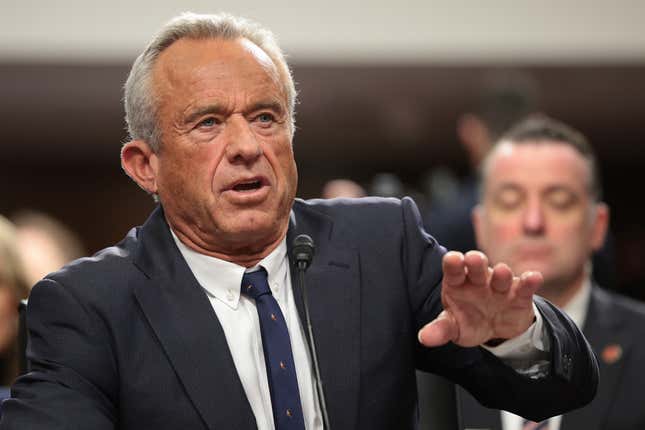
The federal government is preparing to release dietary guidelines by the end of the year — and they may look very different from past editions, thanks to U.S. Secretary of Health and Human Services (HHS) Robert F. Kennedy Jr., a longtime critic of the packaged food industry who has urged companies to eliminate food dyes from their products.
The Dietary Guidelines for Americans are updated every five years and are meant to provide science-based advice on what to eat and drink for optimal health. But they also serve as the foundation for national food assistance programs, shaping everything from school lunches to what low-income families can purchase with food stamps.
The current guidelines, issued in 2020, emphasized dietary patterns and provided recommendations not only for healthy individuals but also for people who are overweight or obese and those at risk for chronic disease.
The next update is due this December, and Kennedy has already pushed back against a preliminary report by an advisory committee that traditionally informs the final recommendations. That report placed an emphasis on health equity — which considers factors such as socioeconomic status, race, ethnicity, and culture.
“We’re in the middle of right now, very, very energetically, revising the nutrition guidelines,” Kennedy told reporters Thursday. “There’s a 453-page document that looks like it was written by the food processing industry. And we’re going to come up with a document that is simple, that lets people know, with great clarity, what kind of foods their children need to eat, what kind of foods they can eat, and what’s good for them.”
Last month, Kennedy and U.S. Secretary of Agriculture Brooke Rollins said their agencies are conducting a line-by-line review of the committee’s scientific report.
“We will make certain the 2025-2030 Guidelines are based on sound science, not political science,” Rollins said in a statement. “Gone are the days where leftist ideologies guide public policy.”
Kennedy echoed that message in his statement.
“We are going to make sure the dietary guidelines will reflect the public interest and serve public health, rather than special interests,” he said. “This is a giant step in making America the healthiest country in the world.”